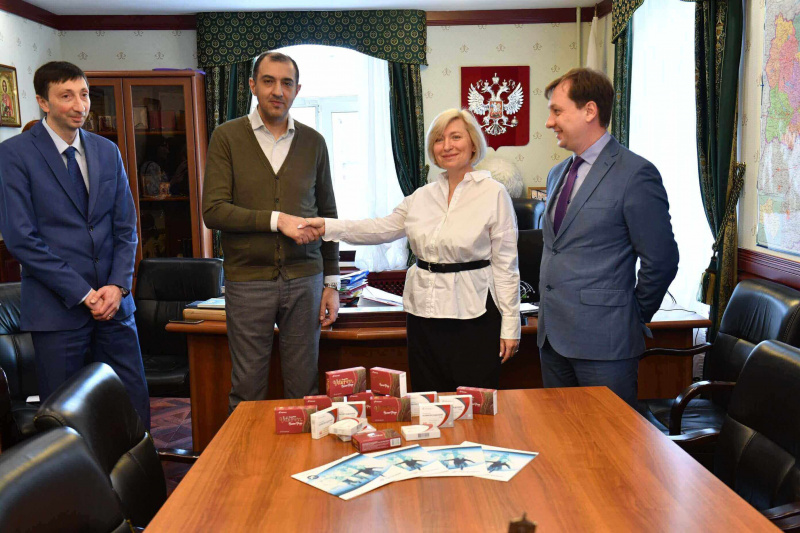
Post-COVID syndrome: treat, not ignore
According to experts, in 90% of patients who have had severe COVID-19, symptoms from residual lung changes persist after recovery. At the All-Russian Congress "Man and Medicine", experts discussed the latest methods of disease control and its consequences. They agreed that one of the solutions could be medicines based on the Hyaluronidase enzyme.
Since the pandemic outbreak in Russia, more than 17 million cases of Coronavirus have been recorded in Russia1. Even if the patient did not recover from a severe illness, he or she can still suffer from the so-called “post-COVID syndrome” manifested by feeling generally unwell, breathing problems, dyspnea, weakness, fatigue, etc. for a long time.
The focus of modern medicine is increasingly shifting from classical treatment regimen to innovative ones that help stopping not only the acute disease phase, but also control long-term post-COVID consequences.
At the symposium within the framework of the Russian National Congress "Man and Medicine", experts shared their views on what modern medicinal products can help in the treatment, prevention and rehabilitation after COVID-19. According to Galina Ignatova, professor, chief pulmonologist consultant of the Ministry of Health of Russian Federation in Ural Federal District, doctor of medical science, more and more attention is paid to the long-term disease consequences: almost 90% of hospitalized and 35% of outpatients have symptoms after recovery.
In these conditions, doctors need medicinal products to help cope with the most dangerous consequences of the virus, in particular, impaired lung function. So, according to Sergey Babak, professor of the phthisiology and pulmonology department, A.I. Evdokimov Moscow State University of Medicine and Dentistry, pharmaceutical therapy should be aimed at improving ventilation and gas exchange in the lungs, increasing endurance, overcoming stress and correcting sleep disorders2.
Sergey Babak shared the experience of using the Russian medicine Longidaza® (Bovhyaluronidase azoximer) both in the complex therapy of patients with severe COVID-19, and in rehabilitation after disease. He told that in 44% of patients who recovered from COVID-19, the use of the medicine contributed to an increase in lung volume by more than 10%.
Galina Ignatova drew attention to another advantage of the Russian development in the patient treatment and rehabilitation: “Longidaza® is compatible with antibiotics, antiviral, antifungal medicines, bronchodilators; it improves the complex therapy effect.” According to Rustem Khamitov, professor, head of internal medicine department of KSMU, honored doctor of the Republic of Tatarstan, the medicine also provides benefits for use in patients with severe COVID-19, lung damage and progressive respiratory failure during intensive care.
The disease symptoms and consequences are also affected by medicines that activate the immune response and have a detoxifying effect. As mentioned by Vladimir Nikiforov, professor, doctor of medical science, head of infectious diseases and epidemiology department of the Pirogov University, chief infectious disease specialist of FMBA of Russia, post-COVID syndrome has various manifestations that reduce the patient’s quality of life even in conditions of preserved respiratory function. One of the common causes is immune mechanisms weakening. Therefore, health professionals are focusing on therapy that normalizes immune cell activity, including lymphocytes, helping the patient's immunity to control infection. In particular, taking Polyoxidonium® (Azoximer bromide molecule) immunomodulator, as a preventative measure, as well as during the acute COVID phase, can help suppress the infection. As part of the studies among patients taking the above mentioned medicine, there was a decrease in the severity of general weakness, pain symptoms in muscles and joints, dizziness, improved concentration, and sense of smell. Positive changes in the psychological and physical condition of subjects suffering from post-COVID syndrome were also identified.
In addition, Azoximer bromide is used as a preventive and therapeutic agent.
1 https://infotables.ru/meditsina/1197-tablitsa-koronavirusa
2 Malyavin A.G., Babak S.L., Gorbunova M.V. Respiratory rehabilitation of post-COVID-19 patients. Archive of Internal Medicine. 2021; 11(1): 22-33.


